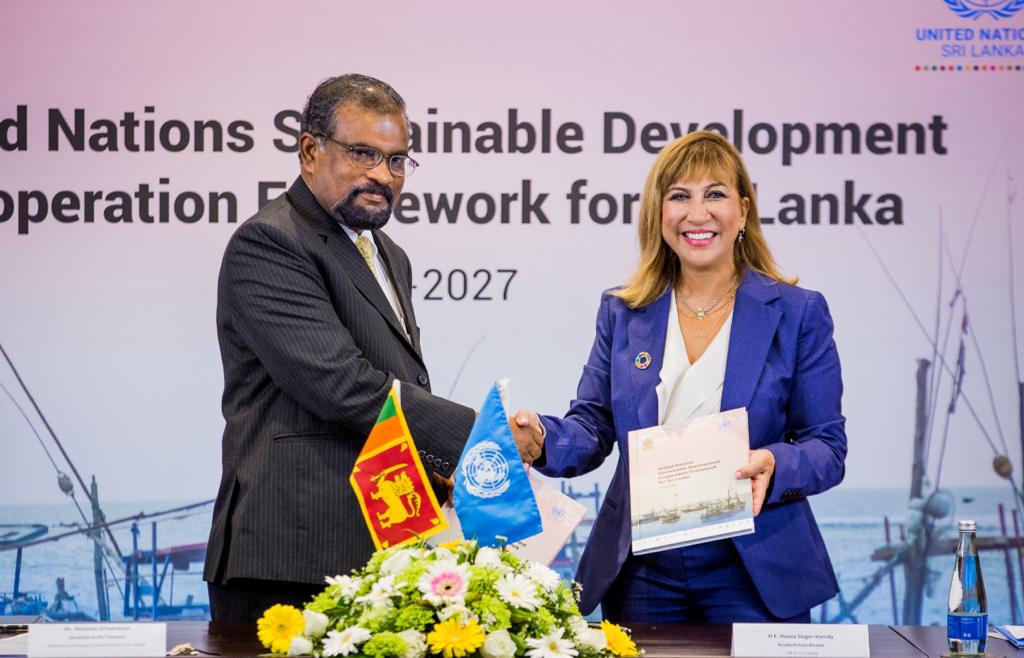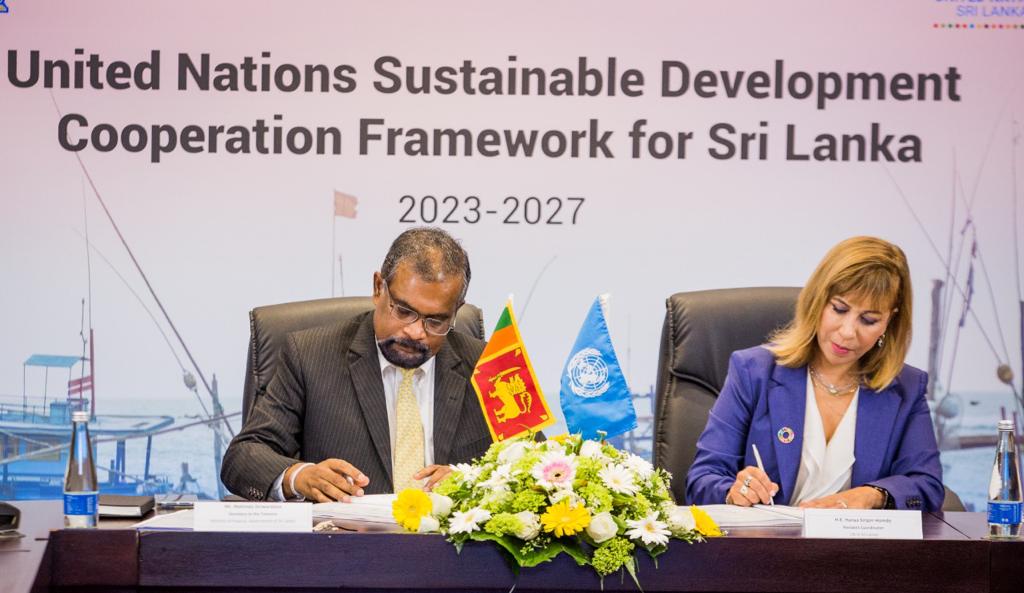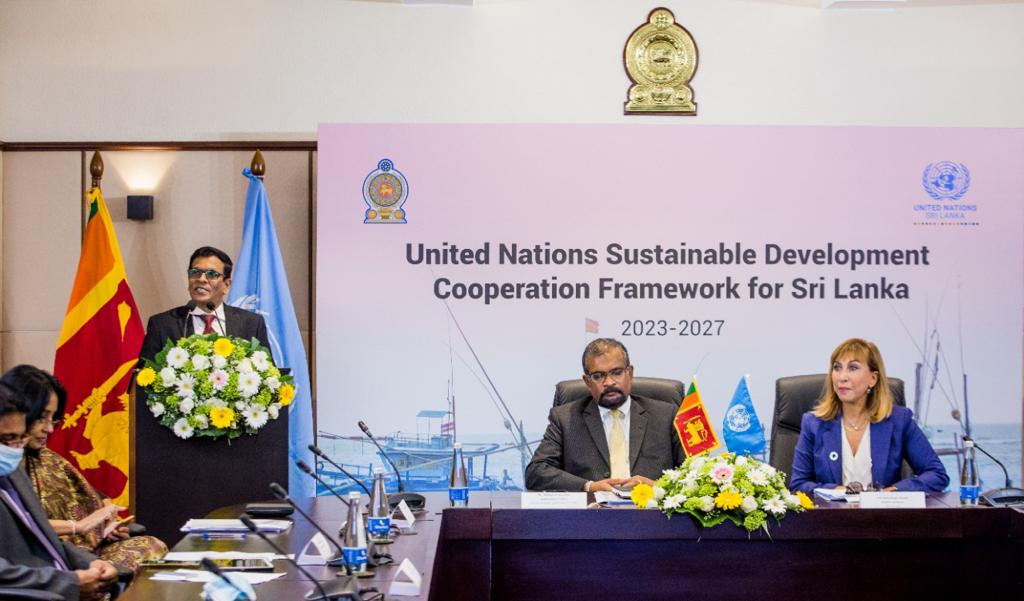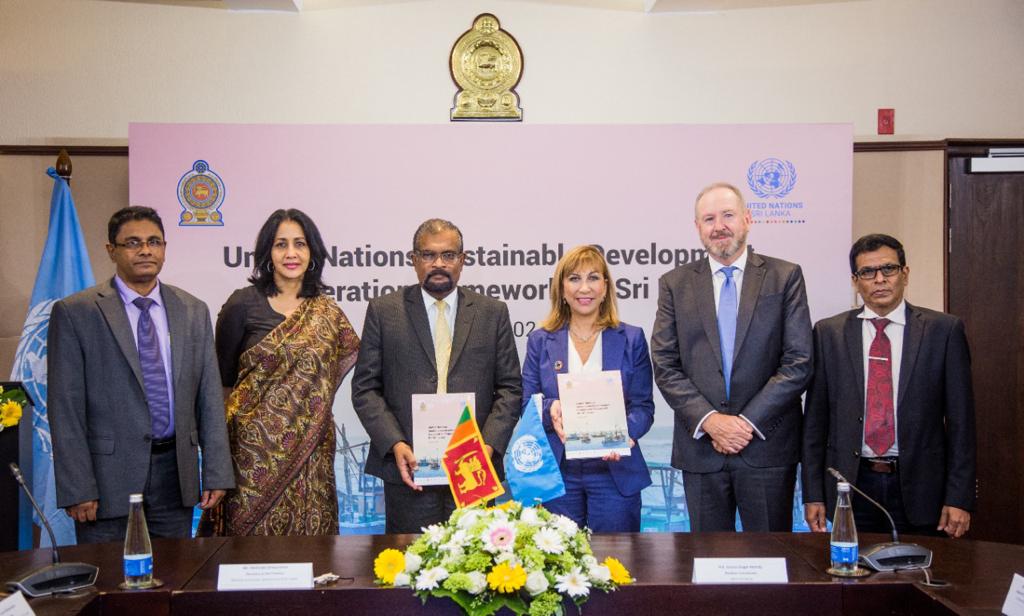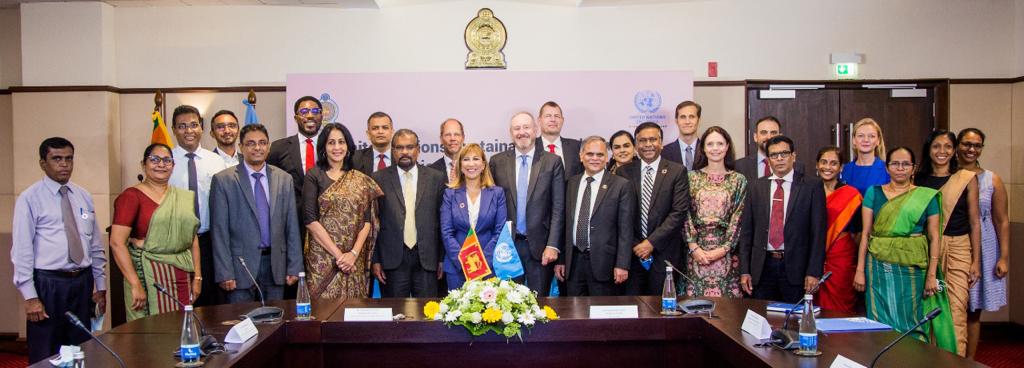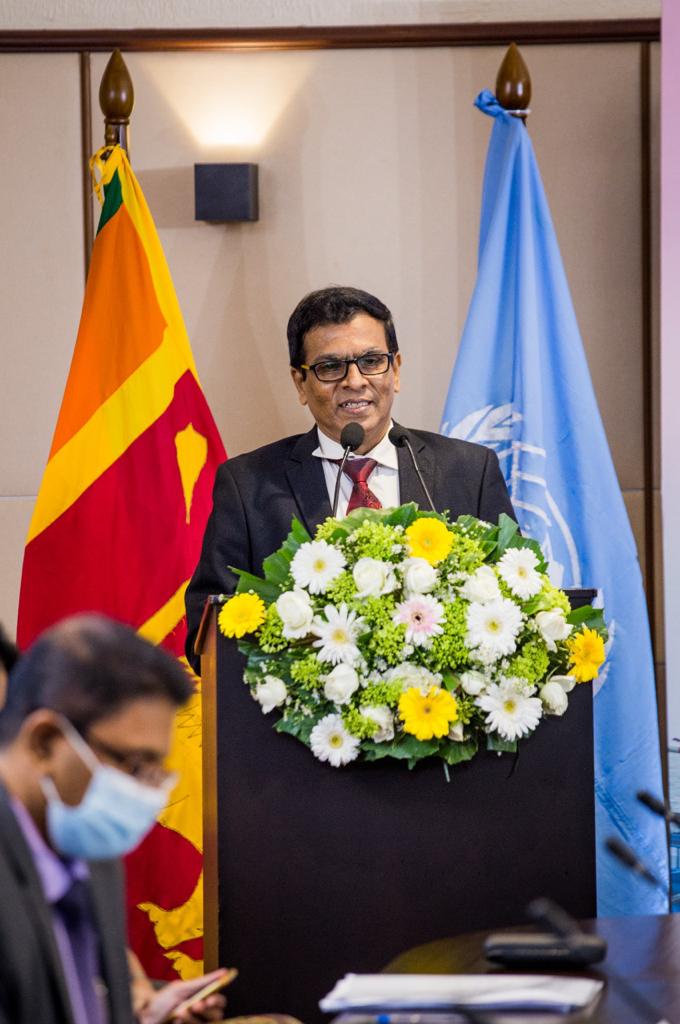
The United Nations Sustainable Development Cooperation Framework (UNSDCF) for the period of 2023-2027 was jointly launched by the Government of Sri Lanka and the United Nations in Sri Lanka on 17th August 2022 at the Ministry of Finance, Economic Stabilization & National Policies. It has developed through a consultative process among the Government, Private Sector, Civil Organizations and the UN country team in Sri Lanka in line with the Development Framework of the country considering the national and regional priorities, while focusing to achieve the 2030 Agenda based on the Sustainable Development Goals.
In order to facilitate the preparation process of this framework, joint National High Level Steering Committee was formed with the representatives from key line ministries, other government institutes and UN agencies and this committee was co-chaired by the Secretary to the Treasury and UN Resident Coordinator. With the approval of Steering Committee, Working Committee was formed and it was led by the Department of National Planning. On the other hand, as the dynamic nature of socio-economic situation of the country, it is expected that this framework will be reviewed annually according to the country context and the priorities of the Government through technical consultations with the relevant Government counterparts and other related stakeholders.
This coherent development framework serves as an umbrella policy document, guiding individual UN agencies to support Sri Lanka to accelerate actions toward the achievement of the 2030 Agenda for Sustainable Development in the forthcoming period. This framework is structured around four interrelated and mutually reinforcing strategic priorities where the UN system will concentrate its expertise to support Sri Lanka to make transformational and accelerated progress in the economic, social, and environmental dimensions of sustainable development. The UNSDCF will be funded through core budget allocations of an estimated USD 60 Million, in addition to approx. USD 325 Million through other resources – spread across the five-year period of implementation.
